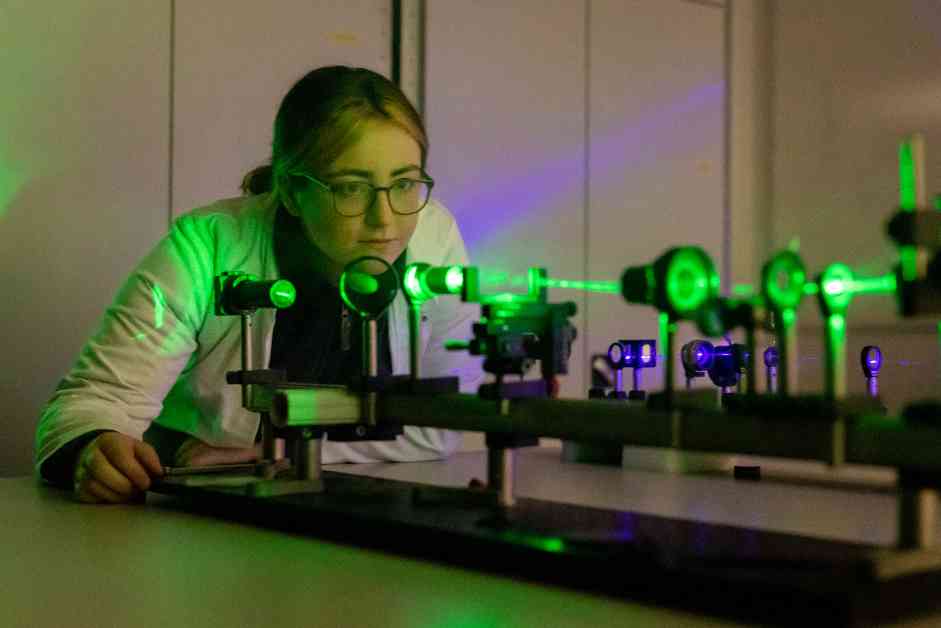Advancing Cancer Research at TU Dublin: A Beacon of Hope on World Cancer Research Day
As the world comes together to commemorate World Cancer Research Day on 24th September, TU Dublin stands at the forefront of cutting-edge research in the battle against cancer. With a firm commitment to advancing scientific knowledge and improving patient outcomes, TU Dublin has solidified its position as a center of excellence in Ireland’s scientific landscape.
Cancer remains a formidable health challenge, with cases expected to rise to 21.6 million globally in the coming years. In response to this alarming trend, TU Dublin has embarked on a series of innovative research projects aimed at tackling various forms of cancer, including radiotherapy, oral cancer, and cervical cancer.
Revolutionizing Cancer Treatment through Personalized Radiotherapy
Radiotherapy plays a crucial role in cancer treatment, with approximately 50% of cancer patients undergoing this therapy at some point during their illness. Despite significant technological advancements in recent years, predicting how individual patients will respond to radiotherapy remains a complex and elusive task.
In collaboration with esteemed institutions such as the University of Leicester and the University of Nantes, TU Dublin researchers are focused on identifying biomarkers that can predict a patient’s susceptibility to severe side effects from radiotherapy. This personalized approach has the potential to revolutionize cancer treatment by enabling clinicians to tailor therapies to individual patients, thereby reducing long-term toxicities such as bowel and urinary incontinence that can significantly impact quality of life.
By gaining a deeper understanding of how patients respond to radiotherapy, TU Dublin aims to enhance the safety and efficacy of cancer treatment, particularly as survival rates continue to improve thanks to advancements in early detection and therapeutic interventions.
Transforming Oral Cancer Diagnosis through Non-Invasive Testing
Oral cancer poses a significant health threat, with a five-year survival rate of only around 50%. The disease often arises from potentially malignant lesions, which currently require invasive biopsies for monitoring, causing distress to patients.
TU Dublin researchers, in collaboration with leading institutions like Dublin Dental University Hospital and DY Patil Dental Hospital in Mumbai, are pioneering non-invasive tests using saliva and brush biopsy samples to predict the progression of these lesions. Early detection is crucial for improving patient outcomes, and this innovative project aims to revolutionize how clinicians monitor oral cancer, reducing the need for repeated invasive procedures.
Through their groundbreaking research, TU Dublin is offering hope to oral cancer patients by enhancing survival rates and quality of life through less invasive diagnostic techniques.
Pioneering Spectroscopic Assays for Cervical Cancer Screening
Cervical cancer is largely preventable through screening, early treatment, and vaccination against the human papillomavirus (HPV). However, current screening methods, while effective, have their limitations.
TU Dublin’s research, in collaboration with prestigious institutions like the Coombe Women and Infants University Hospital and the CERVIVA consortium, focuses on developing spectroscopic assays to differentiate between transient HPV infections and those more likely to progress to cervical cancer. This innovative approach has the potential to significantly reduce unnecessary follow-up tests and treatments, optimizing healthcare resources and ensuring that women at higher risk receive timely care.
Ireland has set an ambitious goal to eliminate cervical cancer by 2040, and TU Dublin’s research efforts are playing a pivotal role in making this vision a reality.
Professor Fiona Lyng, Centre Manager at the Radiation and Environmental Science Centre, TU Dublin, emphasized the importance of continued innovation, collaboration, and funding in the fight against cancer. She highlighted that innovation and dedicated research are essential for improving outcomes for all cancer patients worldwide.
TU Dublin’s unwavering commitment to cancer research is driven by its mission to enhance the lives of the Irish population. By prioritizing personalized medicine, early detection, and innovative screening methods, the University is pushing the boundaries of cancer care and making a lasting impact on patients and the healthcare system as a whole.












